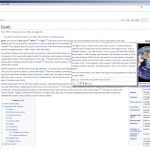Types of Tax-deductible Closing Costs
For people who buy or refinance their homes, closing costs can burn a huge hole in their pockets. They may wonder, “are closing costs tax-deductible?” To understand at what end of the spectrum you fall, it is better to use a closing cost calculator to determine your closing costs and talk to a financial advisor to help you gauge your tax liability. There is good news. Some of them are.
What does tax-deductible mean?
A tax deduction helps reduce an individual’s or a company’s tax liability by bringing down their taxable income. Deductions are expenses incurred by the taxpayer during a year that can be subtracted from their gross income to understand how much tax is due.
Two of the most common tax benefits of buying a home are the property tax deduction and the mortgage interest deduction. However, not many are aware of the deductions related to closing costs, more so because they are slightly confusing.

Closing costs for buyers that are tax-deductible
Not all closing costs are tax-deductible. As a general rule, costs that can be classified as interest or tax are deductible. Here’s a list of closing costs that buyers can deduct on home purchases:
1. Property taxes
Yearly property taxes are deductible, so if you pay any amount at closing, that can be deducted from annual taxes. But there is a limit on how much property tax can be deducted per year. Married couples can claim deductions of up to $10,000 annually and $5,000 if they’re married and filing separately.
2. Mortgage interest
When you pay a part of your mortgage interest at the time of closing, such expense is tax-deductible. As long as you own the house, you can claim deductions on your mortgage interest every year.
3. Loan-origination fee
This is the fee charged by lenders for underwriting and processing your loan. You can deduct this expense, even if your seller pays it.
4. Mortgage points
Homebuyers buy these points to reduce the interest rate on their mortgages. One point costs 1% of the loan amount. Typically, each point lowers the interest rate by 0.25%. The IRS considers these points as prepaid interest. But these points should fulfill the following mandates:
- These points were used for your primary residence
- Paying such points is a set practice in the locality you purchased the home
- They fall within the standard range for that locality
- The total sum paid is outlined on your mortgage settlement statement
As long as you meet the above-mentioned conditions, you can deduct these points even if the seller pays them. You can get the biggest tax savings if you deduct all the points in the year you pay them.
5. Mortgage insurance premium
As per the IRS, four expenses fall under the umbrella of mortgage insurance premiums – private mortgage insurance, USDA loan guarantee fee, VA funding fee for VA loans & FHA loan up-front mortgage insurance premiums. Private mortgage insurance, on average, costs between 0.5% and 1.5% of the loan amount.
Closing costs that are non-deductible
Not all housing-related expenses are deductible from your tax bill. Following are closing costs that cannot be deducted under any situation:
- Utility costs
- Home appraisal fees
- Document preparation fees
- Homeowner’s insurance premium
- Home inspection fee
- Pest inspection
- Escrow fees
- Notary fees
- Transfer taxes
- Stamp duty
- Rent
Closing costs for sellers that are tax-deductible
A portion of the closing costs is paid by home sellers as well. These can eat up a big chunk of the sale proceeds. So, it is only helpful to know some ways to keep more money in your account.
If you’ve resided in your home for two years of the last five years, you will not have to shell out taxes on the first $250k made in profit. This is true if you’re single. If you’re married then the profit up to $500k is exempt from tax.
These exemptions offer more tax savings than deductible expenses.
If the profits from selling your house exceed $250k ($500k if married), all that you can do to raise your home’s cost basis will reduce your capital gains tax. A home’s basis is calculated by adding your purchase price and the costs paid to maintain and sell your house.
A few of the closing costs that can’t be deducted as a seller or buyer can be included in the cost basis. These include:
- Title search fees
- Legal fees
- Survey fees
- Recording fees
- Utility service installation fee
- Mortgage charges paid on behalf of the buyer
- Advertising expenses
Home appraisal, credit report and homeowners insurance fees can neither be deducted nor can be added to a cost basis.
Final thoughts
No two closing cost situations are the same and hence there is no certain answer to whether such costs are deductible expenses. Based on factors like your wealth, home cost, home location and tax brackets, anywhere from 10-90% can be deductible.
















